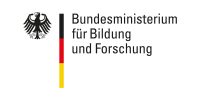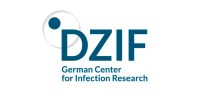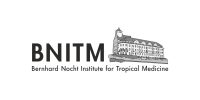The Research Group “One Health bacteriology” based at KCCR is part of the Research Group One Health Bacteriology at the Bernhard Nocht Institute for Tropical Medicine (BNITM) in Hamburg, Germany. Our main focus is the performance of studies in the field of bacteriology and antimicrobial resistance using One Health approaches.
One Health is a collaborative, multisectoral, and transdisciplinary approach — working at the local, regional, national, and global levels — with the goal of achieving optimal health outcomes recognizing the interconnection between people, animals, plants, and their shared environment” (CDC.gov)
Bacterial infectious diseases are common medical problems in developing countries. Due to limited diagnostic facilities, the causative agents and sources of infection as well transmission pathways often remain unidentified. Empiric treatment is a common practice in facilities with scarce resources, fostering the emergence of antibiotic resistance leading to difficult-to treat infections. Due to the absence of effective monitoring, circulating bacterial strains and changes over time are not always entirely understood.
Also, infections seen in humans are often zoonoses representing a public health concern around the globe. This is linked to our close relationship with animals in agriculture and in the environment in particular affecting rural areas of developing countries. Zoonotic pathogens can be transmitted to humans through direct contact or through food, water or the environment. Overuse of antibiotics in animal husbandry has significantly contributed to the increase of multi drug resistant bacteria, also seen in humans. Bacteria are capable of adapting to different environments. They for example can persist on hospital surfaces, in water and soil for extended periods exhibiting a transmission reservoir and harbouring antibiotic resistance, subsequently causing human infections.
Our research interests include the generation and comparison of bacteriological data from humans, animals and the environment in countries with limited resources. A special research focus is on transmission and the identification of transmission reservoirs of antibiotic-resistant bacteria in rural areas of sub-Saharan African countries. Our activities will support and guide patient management and public health measures.
Genetic adaptation of Salmonella enterica in human and animal reservoirs in sub-Saharan Africa (SASSA)
Salmonella enterica cause more than 1.2 million annual deaths worldwide, the majority occurring in resource-limited countries. Infections with non-typhoidal Salmonella (NTS) are typically limited to gastrointestinal disease in industrialized countries. In contrast, in sub-Saharan Africa (SSA), NTS are the most frequent cause of bacterial bloodstream infections in adults and children, associated with high fatality rates. In both industrialized countries and SSA, the serovars Typhimurium and Enteritidis cause the majority of infections. In recent years, Salmonella enterica in SSA have also become increasingly resistant to locally available antibiotics, leading to the substantial burden of NTS infections in Africa.
In industrialised countries, infections with NTS are typically of zoonotic origin with regular food-borne outbreaks. In developing countries, studies on transmission reservoirs are limited but previously it has been found that African Salmonella strains have genetically developed by adapting to different hosts or to the environment.
Our research activities focus on transmission including human, animal and environmental reservoirs, antibiotic resistance and genomic characterisation of circulating Salmonella strains in SSA in order to suggest the implementation of effective control strategies.
Partners:
Kumasi Centre for Collaborative Research in Tropical Medicine (KCCR), Kumasi, Ghana
Agogo Presbyterian Hospital, Agogo, Ghana
National Institute for Medical Research (NIMR) in Tanga, Tanzania
Korogwe District hospital, Korogwe, Tanzania
Funding:
German Research Foundation (DFG)
PI:
Richard Phillips & Denise Dekker
Antibiotic-resistant enteric pathogens in human and animal reservoirs
In resource-limited countries, broad-spectrum antibiotics are often prescribed empirically without microbiological diagnosis. This overuse of antibiotics in human medicine significantly contributes to the emergence and the increase of multidrug-resistance. In addition, the use of antibiotics in animal husbandry as growth promoters and for prophylaxis and treatment of infection aggravates this problem. Often, in countries where resources are limited, animal farming is a common occupancy and people often live in close proximity to animals. Animals and meat products have been suggested as an important source for drug resistant enteric pathogens including Campylobacter spp., Arcobacter spp., Salmonella enterica, ESBL-producing Escherichia coli and Klebsiella pneumoniae in SSA countries. Transmission of these bacteria might occur by direct contact or consumption of contaminated meat products, leading to the colonization of the intestinal tract and eventually to infections. So far, the degree to which animals play a role as a reservoir for the transmission of multi drug resistant bacteria has not been studied on genotype level in rural areas of SSA. Within this project, Campylobacter spp., Arcobacter spp., Salmonella enterica, ESBL-producing E. coli and K. pneumoniae genomes collected from human and animals will be compared to examine transmission between human and animal in rural areas of Tanzania and Ghana.
Partners:
Kumasi Centre for Collaborative Research in Tropical Medicine (KCCR), Kumasi, Ghana
Agogo Presbyterian Hospital, Agogo, Ghana
National Institute for Medical Research (NIMR) in Tanga, Tanzania
Korogwe District hospital, Korogwe, Tanzania
Funding:
German Research Foundation (DFG)
PI:
Richard Phillips & Denise Dekker
Paediatric Phase I/II study of a vaccine against invasive non-typhoidal salmonellosis in sub-Saharan Africa (PEDVAC)
Invasive disease with non-typhoidal Salmonella in SSA is associated with increasing antibiotic resistance (AMR) and has been classified by the World Health Organization as high priority for developing new antibiotics. Despite high case fatality rates, particularly in children <5 years of age in SSA countries, no vaccine is currently available. The burden caused by NTS infections and increasing AMR strongly encourage for prompt development of an effective vaccine. A novel vaccine, is currently being developed by GSK Biologicals and GSK Vaccines Institute for Global Health, targeting the serovars Typhimurium and Enteritidis, the most common causative agents of African invasive NTS. Within a large consortium, a paediatric Phase I/II study will be launched early in 2021 in Ghana. The focus of our group will be on antibiotic resistant genotypes of iNTS-causing Salmonella strains. The information gained will not only inform on circulating Salmonella serovars and genotypes but will also inform on the development of AMR pathogens in SSA.
Partners:
Kwame Nkrumah University of Science and Technology (KNUST), Ghana
Kumasi Centre for Collaborative Research in Tropical Medicine (KCCR), Kumasi, Ghana
Agogo Presbyterian Hospital, Agogo, Ghana
University of Siena, Italy
MMGH Consulting GmbH, Switzerland
GSK Vaccine Institute for Global Health (GVGH), Italy
Funding:
European and Developing Countries Clinical Trials Partnership (EDCTP)
PI:
Richard Phillips & Denise Dekker
One Health“: AMR in environmental reservoirs and colonizing antibiotic resistant bacteria“-Improving antibiotic use in West Africa: exploring current situation and developing strategies for behavior change (BCHANGE)
Antibiotic resistance is rising to dangerously high levels in all parts of the world and becoming one of the largest threats to global health and food security. New resistance mechanisms are emerging and spreading globally, threatening our ability to treat common infectious diseases. Antibiotic resistance occurs naturally but is accelerated by poor infection prevention and control and above all by the inappropriate use and overuse of antibiotics. Epidemiological studies have demonstrated a direct relationship between antibiotic consumption and the emergence and dissemination of resistant bacteria. Antibiotic use is not limited to humans but is also widespread in livestock farming as growth promoters, as prophylaxis and to treat infections. The antibiotics used in livestock are ingested by humans when they consume food: molecular detection methods have demonstrated that resistant bacteria in farm animals reach consumers through meat products. The irrational use of antimicrobials is certainly a complex and multifactorial problem in developing countries, and a proper understanding of the problem is necessary for the development of effective control policies. Without behavior change, antibiotic resistance will remain a major threat, even if new medicines are developed.
The overall study is led by project partners from Heidelberg (HIGH) and France (IRD) in collaboration with the BNITM and all partners.
This project aims at understanding and quantify perceptions and uses related to antibiotics among health care workers, communities and livestock farmers and defining patterns of accessing and utilizing antibiotics. Further an intervention to improve awareness and understanding of antimicrobial resistance through effective communication, education and training using a stakeholder-driven approach shall be defined. The focus of our group within this project will be assessing baseline data on AMR pathogens along the food chain in Nouna, Burkina Faso and Kumasi, Ghana.
Partners:
Kumasi Centre for Collaborative Research in Tropical Medicine (KCCR), Kumasi, Ghana
Nogouchi memorial Institute for Medical Research (NMIMR), Accra, Ghana
Council for Scientific and Industrial Research-Animal Research Institute, Accra, Ghana (CSIR-ARI)
Nouna Health Research Centre (CRSN), Nouna, Burkina Faso
Institute de Recherche en Sciences de la Santé (IRSS), Ouagadougou, Burkina Faso
Centre International de Recherche-Devéloppement sur l’Elevage en zone Subhumide (CIRDES), Bobo Dioulasso, Burkina Faso
French National Research Institute for Sustainable Development (IRD)
Heidelberg University Hospital, Heidelberg Institute of Global health (HIGH)
St Francis Xavier Hospital, Assin Fosu, Central Region
Funding:
Bundesministerium für Bildung und Forschung (BMBF)
French Research National Agency (ANR)
PI:
John Amuasi & Denise Dekker
Development of standardized AMR laboratories for AMR surveillance in sub-Saharan Africa (AMR, STAND AMR, EXPAND AMR)
The spread of antimicrobial resistance (AMR) is a major challenge for health systems worldwide, also affecting many African countries. The majority of bacterial infections with resistant pathogens in sub-Saharan Africa still go undetected and empiric treatment of infections is common. The reason behind are lack of microbiology laboratories, that are capable of performing bacterial culture and antibiotic susceptibility testing, particularly in rural areas of sub-Saharan Africa. Therefore, the GHP funded project “development of standardized AMR laboratories” has so far built and set up three fully functioning AMR microbiology laboratories in three different geographical locations of Ghana, namely Agogo (Asante Akim North District), Assin Fosu (Assin Fosu Municipal) and Agroyesum (Amansie West District). The established laboratories are standardized and are able to process clinical specimens such as blood, urine and stool samples as well as perform antibiotic susceptibility testing according to the guidelines of the WHO Global Antimicrobial Resistance Surveillance System (GLASS). The established AMR surveillance systems will inform on circulation and emerging AMR bacterial strains and will eventually lead to improved patient care by allowing targeted antibiotic treatment. In 2022, this work will be expanded to another study site in Tanzania in collaboration with the National Institute for Medical Research (NIMR) and the Bombo Referral Hospital in Tanga, Tanzania.
Partners:
Kwame Nkrumah University of Science and Technology (KNUST), Ghana
Kumasi Centre for Collaborative Research in Tropical Medicine (KCCR), Kumasi, Ghana
Agogo Presbyterian Hospital, Agogo, Ghana
St. Martin’s Hospital, Agroyesum, Ghana
St. Francis Xavier Hospital, Assin Fosu, Ghana
National Institute for Medical Research (NIMR), Tanga/Korogwe, Tanzania
Bombo Regional Referral Hospital, Tanga, Tanzania
Funding:
Global Health Programme (GHPP)-Bundesministerium für Gesundheit
PI:
John Amuasi & Denise Dekker
The primary goal is to advance clinical development of the vaccine for use in the target population (i.e., infants in sub-Saharan Africa (sSA)) by conducting a pediatric Phase I/II study a sSA country with high medical need. (PEDVAC-iNTS)
Funder: European & Developing Countries Clinical Trials Partnership (EDCTP)
Amount: EUR Total 267.978,99
Project period: 03/2021 – 02/2025
Title: Improving antibiotics use in West Africa: exploring current situation and developing strategies for behaviour change (AMR-B-CHANGE)
Funder: German Federal Ministry of Education and Research, BMBF and French National Research Agency (ANR)
Amount: Total € 303.125,00
Project period: 01 January 2021 to 31 December 2023
Title: AMR surveillance
Funder: German Ministry of Health (BMG)
Amount: Total € 364.000,00
Project period: 2022
Title: Genetic adaptation of non-typhoidal salmonella within human and animal reservoirs in sub-Sahara Africa (SASSA)
Funder: German Research Association, DFG
Amount: Total € 1. 014,079
Project period: February 2019 to February 2022 (No Cost Extension until December 2022)
Group leader: Dr Denise Dekker
Phone: +49 40 42818-521 Fax: +49 40 42818-512 E-Mail: dekker(at)bnitm.de
Project Co-ordinator
Charity Wiafe Akenten
Assistant Project Coordinator
Ellis Kobina Paintsil
Masters Student
Cynthia Adu Kyeremah
Charlotte Ama Tweneboa Adu
Laboratory Technicians
Jones Ankomah (KCCR, Assin Foso)
Benjamin Amoah (KCCR, Agroyesum)
Samson Manu (KCCR, Agroyesum)
Micah Kwartei Quartey (KCCR, Agogo Lab)
Bansah Samuel Edem
Lydia Quaye
Project Manager
Rhoda Mawuko Dorkenoo
Data Officers
Bernard A. B. Essien
Theophilus Coleman (Assin Foso)

Group Leader
Dr Denise Dekker
Phone: +49 40 42818-521
E-Mail : dekker@bnitm.de

Project Co-ordinator
Charity Wiafe Akenten
Phone: +233 26 611 8240
E-Mail : danquah@kccr.de

Assistant Project Co-ordinator
Ellis Kobina Paintsil
Phone: +233 20 270 0486
E-Mail : paintsil@kccr.de






South-end Asuogya Road,
KNUST, Kumasi
Ghana
GPS: AK-312-1059
Monday – Friday
8am – 5pm
Monday – Sunday
8am – 5pm
KUMASI CENTRE FOR COLLABORATIVE RESEARCH IN TROPICAL MEDICINE
Copyright © 2024. All rights reserved